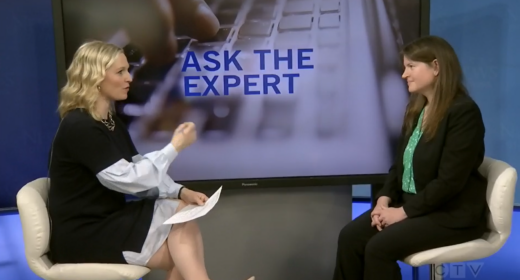Competitive intelligence can be broadly characterized as the act of "defining, gathering, analyzing and distributing intelligence about products, customers, competitors and any aspect of the environment needed to support executives and managers in making strategic decisions for an organization."
For many lawyers, competitive intelligence, to the extent any thought has been given to the subject at all, is often viewed as nothing more than a marketing tool, one in which the lawyer attempts to discern key information about prospective or existing clients with the goal of using that intelligence to obtain new work. Like the proverbial articling interview, it is presumed that the firm that has an intimate understanding of a prospective client's business stands a better chance of attracting a new or more comprehensive retainer from that client. In the marketing context, competitive intelligence is entirely directed at improving the firm's bottom line by securing new work from the client.
While there can be no doubt that the use of competitive intelligence in this manner is entirely appropriate to the business of law, it is surprising that few, if any firms, appear to have seriously taken on the challenge of deploying competitive intelligence as a means of bettering the outcomes for their clients. That is particularly surprising considering that, in litigation at least, the object of every retainer is to resolve a client's problem in the most cost effective and timely manner possible.
Even more surprising is the realization that, unlike other endeavours such as medicine, clients do not seem to have any expectation that their lawyers should employ modern technology to achieve better results and, with rare exception most lawyers seem content to rely on more traditional methods of resolving client problems.
By way of example, is there any doubt that the average patient admitted to a hospital in Canada expects their physician to not only employ cutting edge technology, but also insists on being provided with statistical information sufficient to understand both the likely outcome and relative risks of any proposed procedure or method? In contrast, the typical litigator would be hard pressed to provide any meaningful statistical information on our court system, its judges or juries or even about the relative costs of pursuing one strategy over another.
Litigation budgets remain more art than science and judges and masters are perceived as statistically neutral. Clients are provided with assessments of risk based on the collective weight of decisions in specific areas of law — precedents — rather than on the basis that the individual judge statistically favours one side of an argument over another. Outcomes are assessed solely on the basis of the nature of the dispute between the parties, with no allowance for statistical anomalies like geography or type of client being represented.
Effectively, competitive intelligence for the average litigator is limited almost exclusively to a search of various online databases to see if the kind of case being proposed has been decided before and if so, how. Clients are routinely apprised that it is impossible to predict the costs of litigation, its duration or even its expected outcome.
Such assertions are offered as articles of faith, passed on from one generation of litigator to another and yet, such assertions seem more and more dubious as the availability of information becomes more easily assembled and analyzed. Likewise, clients will likely become increasingly sceptical when told by their lawyers that neither the costs nor the outcome of litigation can be predicted.
Either the discerning client will insist on their lawyer obtaining better answers or, and perhaps more likely, the client may elect to become self-represented. After all, if their lawyer can't predict the cost or the outcome, how much worse would the client be by going it alone?
Not only should clients be able to expect more of their litigators, but we should expect more of ourselves. Perhaps the tide of disenfranchised clients could be stemmed by using competitive intelligence to assist them to achieve more predictable, timely and cost effective results.
So how does a firm take a more robust approach to competitive intelligence, one that moves beyond a basic Facebook and LinkedIn search of prospective clients?
While there are likely a range of solutions to this problem, it must begin with a willingness to accept that the information to be leveraged already exists, and that a better and more efficient litigation strategy can be employed if the information is carefully stored and evaluated statistically. For instance, while it may be the official view that judges are neutral and decide every case on its merits, who among us has not canvassed a colleague about a particular judge, his or her personality, judicial history and inter-relationships with other lawyers?
Clearly, those kinds of questions are asked because there is some tacit acceptance that the answers provide some insight on how to approach an argument or a case. Similarly, is there much dispute that the location of litigation has an impact on whether a jury notice is appropriate, how much monetary compensation a client might expect to receive or even how the rules of practice are interpreted and applied?
The key is to move past the fiction that such factors do not impact on how cases are prosecuted and decided, in favour of a system that not only accepts that such intangibles bear on the outcome, but that by warehousing the information, a more meaningful assessment and evaluation can be provided to our clients. Ignoring that reality would be akin to believing that the falling tree only makes a sound if someone is there to hear it.
The information is there — isn't it time it was leveraged?
[This article is reprinted with permission and first appeared in the January 2010 issue of The Lawyers Weekly. Author: Joseph Griffiths]


